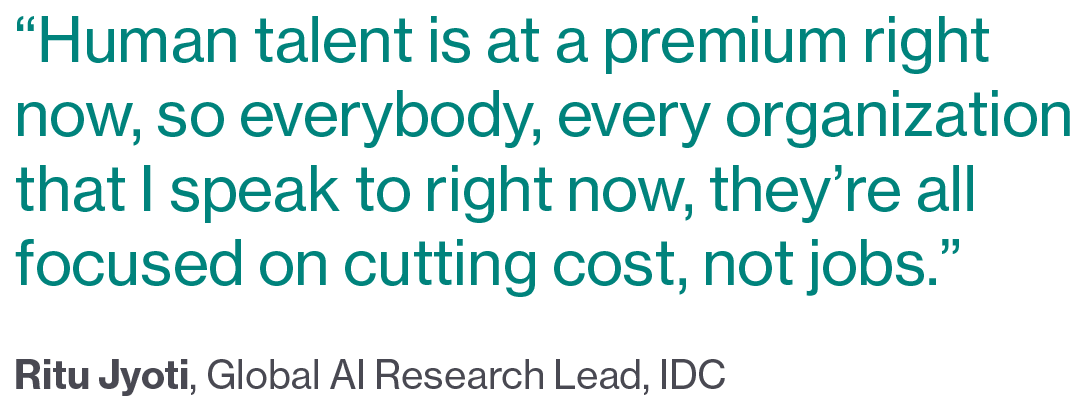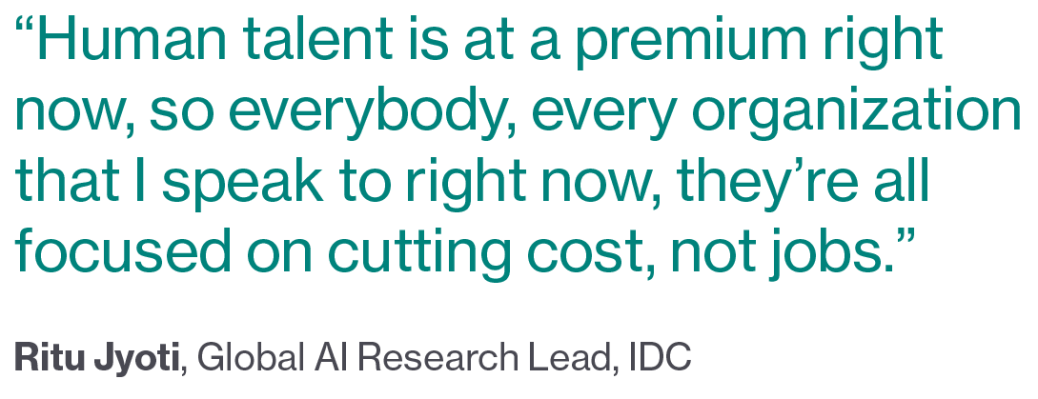Disruption in manufacturing and the supply chain has pushed businesses toward digital transformation as they seek ways to stay competitive. For manufacturers, these disruptions—along with the advent of AI—present opportunities to make manufacturing more efficient, safer, and sustainable.
Companies can use AI to streamline processes and fight downtime, adopt robotics that promote safety and speed, allow AI to detect anomalies quickly through computer vision, and develop AI systems to process vast volumes of data to identify patterns and predict customer needs.
“In manufacturing, the biggest benefits come when people from the business are able to work together with data experts, using data and AI to get insights, ultimately taking actions to improve their processes,” says Pierre Goutorbe, AI solutions director for energy and manufacturing at Dataiku. “The more workers get familiar with AI and use it on a daily basis, the more we’ll see the benefit from it,” he says.

Speeding up the adoption of AI
Between supply-chain disruptions and worker shortages, the manufacturing sector has been innovating to stay ahead in the global marketplace. However, a June 2023 study by Dataiku and Databricks found manufacturing lags behind other industries, with about a quarter (24%) of companies still at the exploration or experimentation stage in terms of AI adoption, while only about one-fifth (19%) of companies across all other industries are still in this beginning stage.
This content was produced by Insights, the custom content arm of MIT Technology Review. It was not written by MIT Technology Review’s editorial staff.





Recent Comments